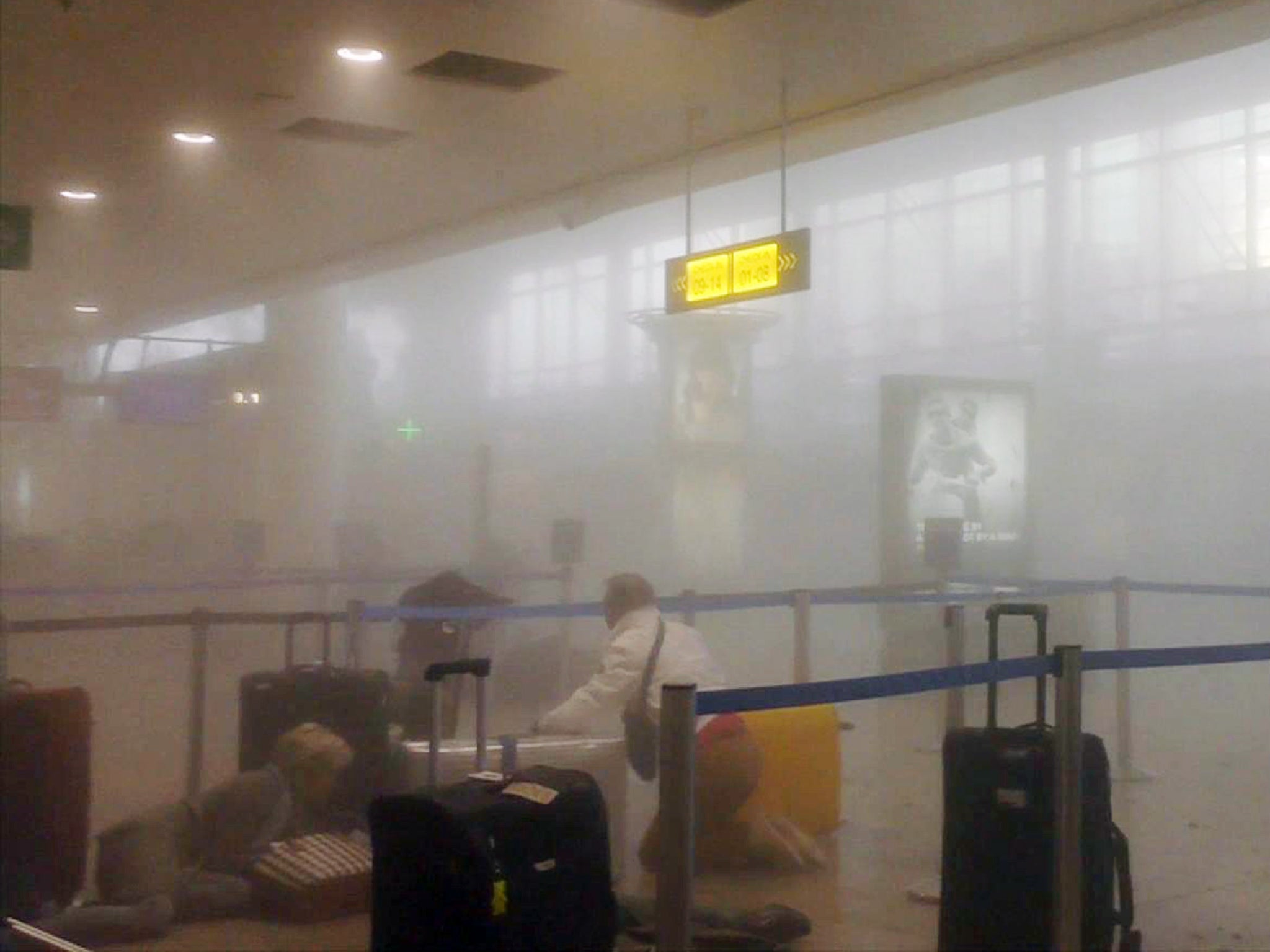We could cut the risk of a Brussels-style terror attack at UK airports if we took this tip from Canada
Bringing guns or explosives into a crowded airport is all too easy - but we could prevent large gatherings of people by changing the check in process


Your support helps us to tell the story
From reproductive rights to climate change to Big Tech, The Independent is on the ground when the story is developing. Whether it's investigating the financials of Elon Musk's pro-Trump PAC or producing our latest documentary, 'The A Word', which shines a light on the American women fighting for reproductive rights, we know how important it is to parse out the facts from the messaging.
At such a critical moment in US history, we need reporters on the ground. Your donation allows us to keep sending journalists to speak to both sides of the story.
The Independent is trusted by Americans across the entire political spectrum. And unlike many other quality news outlets, we choose not to lock Americans out of our reporting and analysis with paywalls. We believe quality journalism should be available to everyone, paid for by those who can afford it.
Your support makes all the difference.When the Brussels airport suicide bombers woke up on Tuesday morning they were confident of three things. When they took their bombs by taxi to the check-in zone, they would face no obstacles. They would find the area crowded with passengers checking in for Philadelphia and beyond. And they could, therefore, expect to murder many innocent strangers and chalk up another “victory” for jihadism, spreading fear and suspicion at the heart of Europe.
Airports are the most visible symbols of the freedom to travel, which is why the attack at the Brussels airport terminal has a higher profile than the even bloodier Metro bombing this week. They are naturally cosmopolitan places thronging with a diversity of people with luggage. From a terrorist’s perspective, this signifies both an opportunity and a target.
While officials at the entrances of stores, theatres and cultural attractions around Europe routinely search visitors’ bags and backpacks, transport hubs are largely immune to this extra layer of personal scrutiny. Bringing guns or explosives into a crowded, confined airport is all too easy.
Just 12 hours before the attack in Brussels on Tuesday, I arrived at Munich airport for a flight to London. I went straight to the passport and security checkpoint, where I queued for around 20 minutes along with perhaps 60 other passengers. The following morning, I imagine we all realised how vulnerable we had been at that moment.
As the weak spot of aviation security comes under scrutiny, with demands for additional checks at the entrance to airport terminals, airport managers were quick to respond. “Additional security measures such as checks on persons and goods entering airport landside spaces could be disruptive and actually create new security vulnerabilities,” said a spokesman for ACI Europe, the airports' trade association. “By displacing the gathering of passengers and airport visitors to spaces not designed for that purpose, such measures would essentially be moving the target rather than securing it.”
A cynical traveller would say that the airports see a threat to their earnings from “landside” shops and restaurants. But it is true to say that aviation security generates more than its fair share of unintended consequences.
In July 2014, Homeland Security in Washington DC ordered “enhanced security measures in the coming days at certain overseas airports with direct flights to the United States.” The immediate effect at Manchester airport was to create implausibly long queues. Individual travellers took the rational decision to show up hours early to reduce the risk of missing their flights, which collectively created massive crowds and presented a tempting target for terrorists.
The answer lies in smarter management of passenger flows, especially at the security checkpoint. The two variables are the number of channels that are staffed, and the rate at which passengers arrive. The first is within the control of the airport, the second is not. But it could be.
At Montreal airport, passengers are tempted by an offer to “book your priority passage through security. Free service.” The deal is this: if you undertake to reach the security checkpoint at a specified time - determined by the airport - you are guaranteed fast-track service. Queue-jumping works for the airport because it can regulate the flow of passengers and deploy staff appropriately, while every passenger would love to speed through security - and not hang around for ages in an uncontrolled area.
When I tried the service, I was given a civilised slot 75 minutes before the departure of flight BA94 for Heathrow. All I had to do was time my run.
Agreed, such a system might not work perfectly in Britain, given the vagaries of motorway congestion and public transport - but it is still better than the anarchic model we currently have. And unless the whole aviation community gets smart, then the politicians will come wading in with all manner of unexpected consequences.
Join our commenting forum
Join thought-provoking conversations, follow other Independent readers and see their replies
Comments